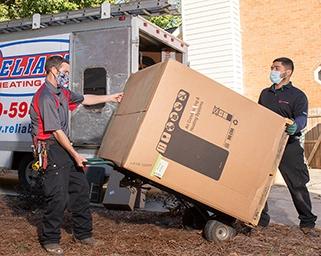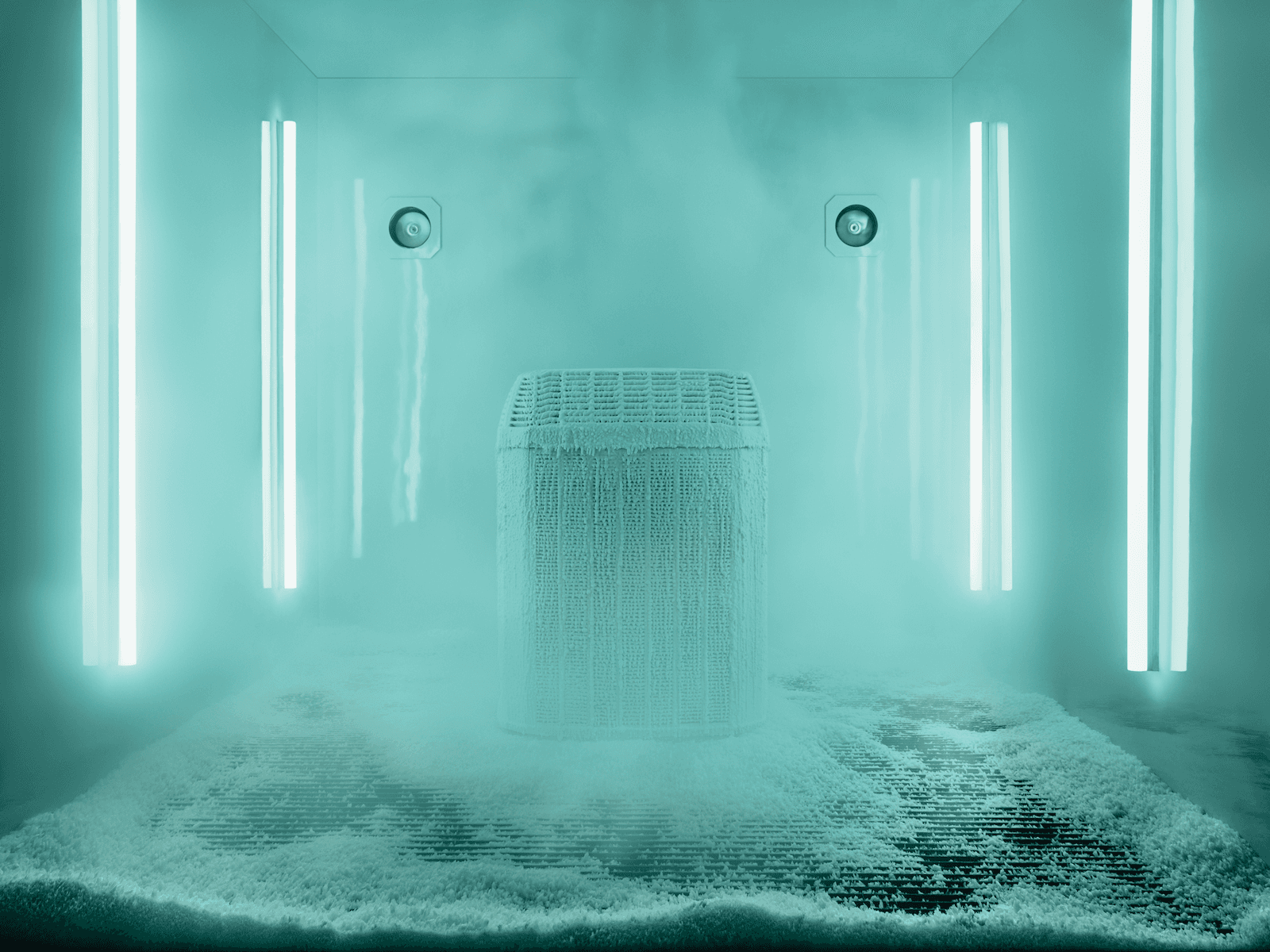How Many Tons Should My Central AC Unit Be?
Shopping for a new central air conditioner? Learn about how many tons of cooling capacity you need and why working with an HVAC professional is so important.
By Anne Fonda
Please understand that we are just laying out some industry guidelines. The best way to find out how many tons your new central air conditioner should be is to work with experienced HVAC professionals who won’t cut corners to rush a sale.
Understanding tons in HVAC
A ton refers to cooling capacity rather than the weight of the unit. One ton equals 12,000 British Thermal Units (BTUs). To determine how many tons your new AC unit should be, an HVAC professional should perform a detailed load calculation.
How many tons of AC per square foot?
While an HVAC professional can offer precise sizing, the following table can give you a ballpark idea of the size your AC unit needs to be based on the size of your home.
| Home size (sq. ft.) | Unit Size (tons) | Unit Size (BTUs) |
| 900 sq. ft. | 1.5-ton AC unit | 18,000 BTUs |
| 1,200 sq. ft. | 2-ton AC unit | 24,000 BTUs |
| 1,500 sq. ft. | 2.5-ton AC unit | 30,000 BTUs |
| 1,800 sq. ft. | 3-ton AC unit | 36,000 BTUs |
| 2,100 sq. ft. | 3.5-ton AC unit | 42,000 BTUs |
| 2,400 sq. ft. | 4-ton AC unit | 48,000 BTUs |
| 3,000 sq. ft. | 5-ton AC unit | 60,000 BTUs |
The Answer to “How many square feet per ton of AC” question depends heavily on how well insulated the home is, and that has changed a lot over time with modern homes having better insulation, more efficient windows, and many other factors.
So, while an older home that has the original single pane windows may need 400 SF/ton of air conditioning, most newer homes built in the last 10 years or so only need 600 SF/ton or even less. This variation is why it’s so important to have a contractor perform an on-site assessment of your home to determine the appropriate sizing.
However, with the updated insulating materials used in new construction, it may be closer to 1000 SF/ton for a new home. The SF/ton may also need to be adjusted for your existing home if you’ve done some weatherization improvements such as insulation upgrades, sealing leaks, installing energy-efficient replacement windows and doors, and more.
This is why it’s so important to choose an experienced HVAC contractor. You want someone who will take all of the variables into account, rather than sizing your system strictly on square footage or saying you need the same size unit as what you have now, without doing any calculations.
Size matters, but so does the number of cooling stages
When you’re looking to schedule AC replacement, you also want to investigate the number of cooling stages a unit has.
Single-stage systems offer the lowest initial purchase price, but they are not as efficient as the other options available. Variable speed systems offer the best performance, both in terms of precise temperature control and comfort, but also in terms of having the highest efficiency. Multi-speed systems are a great ‘middle-ground’ option, offering significantly better efficiency and performance than a single stage system but at a lower initial price point than a variable speed system.
Two-stage and single-stage units have two or one speed, which can lead to frequent starting and stopping, which uses more energy. These units may be better suited to areas that don’t have long, hot summers.
Work with the HVAC experts
Your local Trane dealers have the experience you need when it comes to properly sizing your HVAC system. They’ll run load calculations and explain how they came up with product recommendations to optimize comfort and efficiency.
They can even provide you with an estimate of how much money you can save on your monthly energy bills. You can also count on them to help you understand which units are eligible for tax credits and other incentives. Be sure to ask about financing as well.
Anne Fonda, Content Writer
A Content Writer with Trane Technologies, Anne Fonda researches topics and writes for Trane® and associated residential HVAC brands. She works in collaboration with Trane Technologies subject matter experts, offering easy-to-understand, informative content on complex topics. Her goal is to help consumers make informed decisions on the products and services they need.
She has written for HVAC and other service provider websites for over 16 years. Before transitioning to web content writing, Anne had a 14-year stint as an award-winning journalist. She graduated cum laude from the University of Missouri-Columbia School of Journalism.
When she’s not working, Anne enjoys playing word games, reading, gardening, spending time with family, and visiting gardens and museums.
Expert review by Mark Woodruff, Senior Product Manager, Ducted Outdoor




